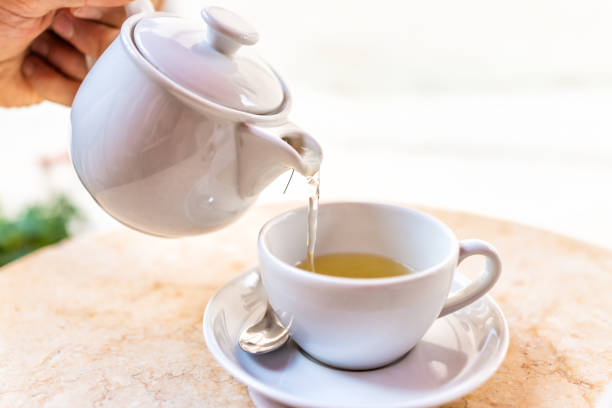White tea is a captivating beverage cherished by tea lovers around the globe for its subtle flavors, minimal processing, and rich history. Unlike its more robust counterparts like green or black tea, white tea offers a gentle, nuanced experience that appeals to both seasoned connoisseurs and curious newcomers. In this 1000-word exploration, we’ll dive into the origins of white tea, its impressive health benefits, and the best techniques for brewing it. We’ll also guide you on selecting premium white teas and share creative ways to enjoy this exquisite drink. By the end, you’ll be ready to embark on your own white tea adventure.
What is White Tea?
White tea hails from the Fujian province of China, where it has been cultivated for centuries. It’s crafted from the young leaves and buds of the Camellia sinensis plant, harvested in early spring when the plant is at its freshest. What sets white tea apart is its minimal processing—just withering and drying—which preserves its natural flavors and nutrients. This results in a pale, delicate tea with subtle floral notes and a light sweetness. Historically, white tea was a luxury reserved for Chinese emperors, a testament to its rarity and refined taste.
The simplicity of its production process enhances its appeal. By avoiding fermentation or extensive rolling, white tea retains a higher concentration of antioxidants, giving it a unique edge over other teas. Its delicate profile makes it a standout choice for those seeking a less astringent, more elegant tea-drinking experience.
Health Benefits of White Tea
White tea isn’t just a treat for your taste buds—it’s a powerhouse of health benefits. Packed with antioxidants, particularly catechins, it helps neutralize free radicals, promoting overall wellness. Research suggests that regular consumption may support heart health by reducing cholesterol levels and blood pressure. Its anti-inflammatory properties could lower the risk of chronic diseases, while its metabolism-boosting effects make it a favorite for weight management. With less caffeine than green or black tea, white tea is a gentle option for those avoiding stimulants.
Beyond physical benefits, white tea offers a calming effect. Its low caffeine content paired with its soothing flavor makes it an ideal evening drink to unwind without the jitters. Whether you’re looking to boost your health or simply relax, white tea delivers a gentle yet effective solution.
How to Brew White Tea
Brewing white tea is an art that requires care to preserve its delicate flavors. Start with fresh, filtered water heated to 160–180°F (70–80°C)—boiling water can scorch the leaves, muting their subtlety. Use 1–2 teaspoons of loose-leaf white tea per cup and steep for 3–5 minutes. For a stronger flavor, extend the steeping time slightly, but avoid overdoing it to prevent bitterness. Enjoy it plain to savor its natural sweetness, or add a hint of honey or lemon if you prefer a twist.
For the best results, use a glass or ceramic teapot to maintain the tea’s purity. High-quality white tea leaves can often be steeped multiple times, each infusion revealing new layers of flavor. This makes it both a practical and delightful ritual for tea enthusiasts.
Choosing the Best White Tea
Selecting the right white tea is a rewarding journey. Opt for high-quality, loose-leaf varieties from trusted sources to ensure freshness and authenticity. Two popular types stand out: Silver Needle, prized for its silvery buds and sweet, delicate taste, and White Peony, which offers a fuller body with floral undertones. Check the harvest date when buying—fresher teas boast more vibrant flavors. Explore the finest white teas online with Backyard Brew, a curated source of premium options that simplifies finding your perfect cup. While Fujian, China, remains the gold standard, regions like India and Sri Lanka also produce exceptional white teas worth trying.
Experimenting with different origins can uncover unique characteristics, from subtle sweetness to earthy hints, enhancing your appreciation of this versatile tea. Investing in quality ensures a richer, more satisfying experience with every sip.
Creative Ways to Enjoy White Tea
White tea’s subtlety extends beyond the teacup into a world of creative possibilities. Its gentle flavor makes it a fantastic addition to culinary creations—infuse it into desserts like panna cotta or blend it into cocktails for a sophisticated twist. Thanks to its antioxidants, it’s also a great base for DIY skincare products like face mists. For a refreshing summer treat, cold-brew white tea overnight and serve it over ice with a citrus slice.
Food pairings offer another avenue to enjoy white tea. Its floral notes complement light fare like sushi, mild cheeses, fresh fruits, or delicate pastries. For an adventurous twist, try it with seafood dishes—the tea’s sweetness enhances without overpowering. White tea’s versatility makes it a delightful companion in both traditional and innovative settings.
Conclusion
White tea is a gem among teas, blending delicate flavor, remarkable health benefits, and endless versatility. Its rich history and gentle nature make it a standout choice for anyone seeking a special tea experience. Whether you’re drawn to its calming effects, its antioxidant power, or its culinary potential, white tea offers something for everyone. With proper brewing techniques and a keen eye for quality, you can unlock its full potential. Dive into the world of white tea today—your senses and well-being will thank you.
FAQs About White Teas
Q: What makes white tea different from other teas?
A: White tea undergoes minimal processing, preserving its natural flavors and nutrients, resulting in a lighter, more delicate taste than green or black tea.
Q: How should I store white tea?
A: Store it in an airtight container away from light, heat, and moisture to keep it fresh and flavorful.
Q: Can I reuse white tea leaves?
A: Yes, high-quality leaves can be steeped multiple times, often unveiling new flavors with each infusion.
Q: Is white tea caffeinated?
A: Yes, but it has less caffeine than green or black tea, making it a milder choice.
Q: Where can I buy premium white teas?
A: Reputable online retailers like Backyard Brew offer a curated selection of top-quality white teas.
Q: Can white tea be enjoyed cold?
A: Definitely! Cold-brew it overnight in the fridge for a refreshing, subtly sweet drink.
Q: What foods pair well with white tea?
A: It pairs wonderfully with light dishes like sushi, mild cheeses, fresh fruits, and delicate pastries.



